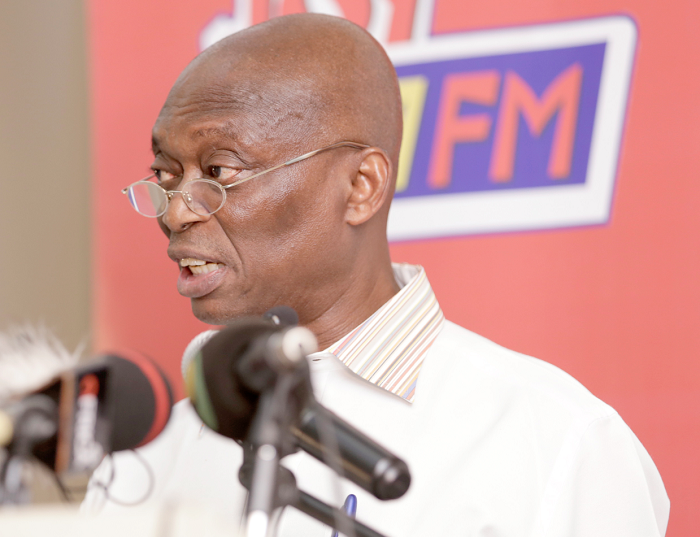
Let’s build stronger CSOs — Baako
The Editor-in-Chief of the New Crusading Guide, Mr Abdul Malik Kweku Baako, is calling on civil society organisations in the country to create a critical mass of vigilant observers who will ensure that governments are accountable to the people at all times.
Advertisement
He said building a strong political activism of civil society groups in the governance process was the surest way of ensuring accountable governance, adding that the situation where individuals placed their hope in political parties or the government of the day, to pursue justice on their behalf was not the best way to go.
Mr Baako was speaking at the 13th Kronti ne Akwamu Lecture, which was on the theme; “The Search for Accountable Government under the 4th Republic", in Accra last Thursday. The lecture was organised by the Ghana Centre for Democratic Development (CDD).
He enumerated some positive and negative developments in the country since its return to constitutional rule in January 1993.
He said successive governments had failed to prosecute public officials who engaged in acts of financial malfeasance and were cited in the Auditor General (AG) and the Public Accounts Committee (PAC) of Parliament reports.
The Editor-in-Chief of the New Crusading Guide expressed worry over the culture of impunity, institutional corruption and other acts of maladministration under the various governments since the inception of the Fourth Republic.
Kronti ne Akwamu
The Kronti ne Akwamu lecture is the CDD’s flagship annual public lecture on democracy and governance.
It is one of the centre’s initiatives aimed at bridging the gap between reflection, research and analysis.
It usually features prominent scholars of local and international repute whose work has to do with democratic development and fostering good governance. Speakers are invited to share knowledge and insight on such topics in the hope of stimulating public discourse.
Some past speakers include former UN Secretary General, Mr Kofi Annan, who delivered the previous lecture, the late Mr Peter Ala Adjetey, a former Speaker of Parliament, Mr Francis Emile Short, a former Commissioner at the Commission on Human Rights and Administrative Justice (CHRAJ) and Mr Justice V.C.R.A.C. Crabbe, a retired Supreme Court judge.
Parliament’s ignorance
Mr Baako also expressed disappointment that Members of Parliament (MPs) appeared to be ignorant about certain developments on some legal matters they otherwise should have known.
He said embedded in the Financial Administration Act 654 of 2003, was a provision requiring the setting up of financial administration courts.
The panel, according to Section 67 of the Act, is charged with the power to enforce the recommendations of the PAC on the AG’s reports.
“For more than 10 years, the financial courts could not be set up as public officers got away with financial malfeasance,” he said.
He said the immediate past Chief Justice (CJ), Mrs Georgina Theodora Wood, however moved to set up five courts in March 2014 - two in Accra and one each in Kumasi, Sekondi and Tamale.
But Mr Baako noted that it had to take the CJ at the time, to remind some MPs about the functionality of those courts and their readiness to take cases.
“There are hundreds of cases that ought to be flooding the courts but the slow pace of work in recovering stolen funds and punishing corrupt public officials has been our weakness,” Mr Baako contended.
Martin Amidu commended
He singled out the citizen vigilante, Mr Martin Amidu, for praise for his tenacity and perseverance in the fight against the wrongful payments of judgement debts to Mr Alfred Agbesi Woyome and Waterville in the Supreme Court.
“The action by my friend and comrade is highly commendable and I urge citizens of this country to take up similar campaigns in pursuit of accountable governance,” he said, adding “we must make the Supreme Court a very busy place relative to protecting the rule of law”.
One of the low points in the country’s young democratic experiment, Mr Baako said, was the $5 million that former Nigerian President, Mr Sanni Abacha, was alleged to have given to former President Jerry John Rawlings.
He chided Parliament for failing to probe that allegation and other string of alleged corruption issues that Parliament failed to look into, including its failure to investigate the sale of Merchant Bank and allegations associated with the purchase of ‘Hotel Kufuor’.
Writer’s email: [email protected]




